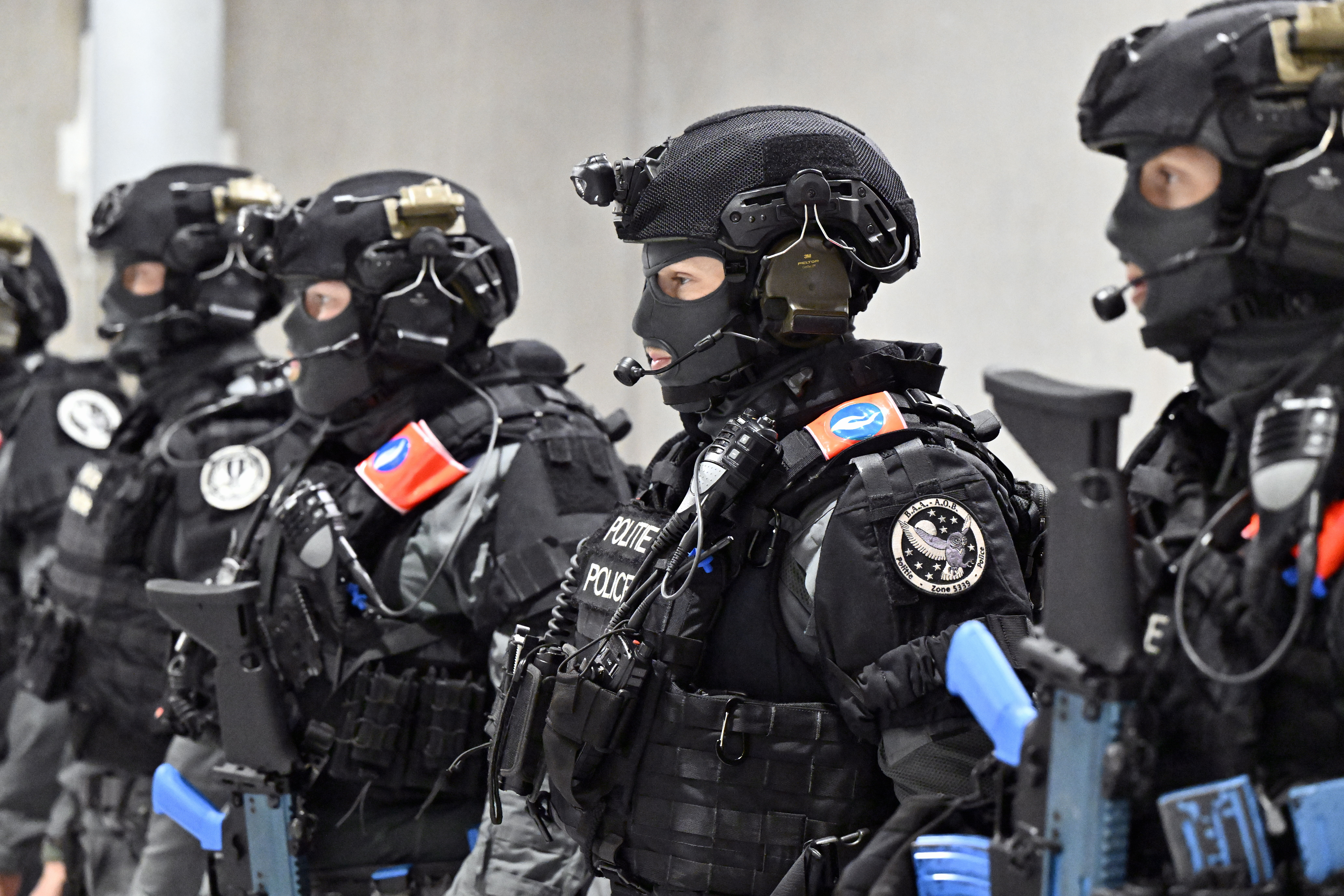Elections 2024: Who should I vote for if I want more police officers on the streets?

In the run-up to the June elections, Belgium's political parties are staking out their positions on key issues. Today we look at where they stand on defence, security and justice.
Although crime in Belgium and Flanders has fallen in recent years, the feeling prevails that society has become increasingly unsafe. Escalating drug violence in cities and nuisance on the streets means that many people prefer to stay indoors after dark. So security is a big election issue, both at home and abroad. All parties agree on one thing at least: justice must work more efficiently and faster.
Domestic security
On domestic security, the differences between the political parties are quite large. N-VA, for example, wants to increase penalties for organised crime drug offences, serious violent crimes and sexual aggression. Vlaams Belang goes further: not only will punishments be tougher, but they must also be enforced effectively with no chance of early release. Chemical castration should also be possible in cases of sexual abuse, for example.
Open VLD and CD&V largely follow N-VA’s views but place particular emphasis on tackling organised crime and the war on drugs, not necessarily by stepping up repression but by drying up the cash flows. Vooruit, in turn, emphasises prosecuting social dumping and economic exploitation, while Groen wants to focus mainly on prevention and addressing the root causes of insecurity, such as inequality and poverty. PVDA/PTB, finally, believes that those with money, knowledge and connections in Belgium have a greater advantage in court and wants to tackle that problem.
Among French-speaking parties, Les Engagés, DéFI and MR in particular want more repressive action against structural crime and drugs. PS and Ecolo, like their Flemish counterparts, think the approach should be more care-oriented: policies should help people escape these environments rather than punish them.
Global security
As the war in Ukraine continues to drag on, one question in particular is at the heart of the security and defence debate: should the budget increase faster than already foreseen as the threat to Europe's external borders increases?
Most parties continue to see NATO as a key organisation to tackle European criminality and argue for additional investment in defence to better meet the organisation’s requested defence budgets of 2 per cent of the national GDP. N-VA wants to bump investment in defence to at least 2 per cent of GDP by 2029, as well as purchase a third frigate and more F35 fighters. The same can be heard from Vlaams Belang, which also wants to further expand the navy.
International security policy with NATO is also crucial for the Christian democrats CD&V (2 per cent GDP by 2030). The liberals of Open VLD, too, want to meet the 2 per cent requirement by 2029 but want to boost cybersecurity on top of that. Socialist party Vooruit is less ambitious, aiming to bump the defence budget to 1.54 per cent by 2030, reaching the target of 2 per cent by 2035.
Groen, on the other hand, do not want to increase the defence budget and want to use the money to address social and environmental problems. Similarly, PVDA does not want more investment in defence and says NATO is not the solution but part of the problem. The far-left party calls for a major diplomatic initiative for a just and lasting peace in Ukraine.
On the French-speaking side, the situation is largely the same: the liberal MR and social-liberal DéFI want to raise the defence budget to the NATO standard as soon as possible. The socialist PS, the greens of Ecolo and the far-left PTB, on the contrary, do not see the case for a hefty investment. Les Engagés are between the two camps, with a slower build-up of defence resources.
In the run-up to the elections for the federal, regional and European parliaments on 9 June, Belga English explains how the parties in Belgium want to address today’s challenges. Each day we put the spotlight on one issue. |
Police officers take part in exercises during a royal visit to the POLBRU CADETS youth project of the Brussels Capital Ixelles police zone © BELGA PHOTO ERIC LALMAND
Related news

